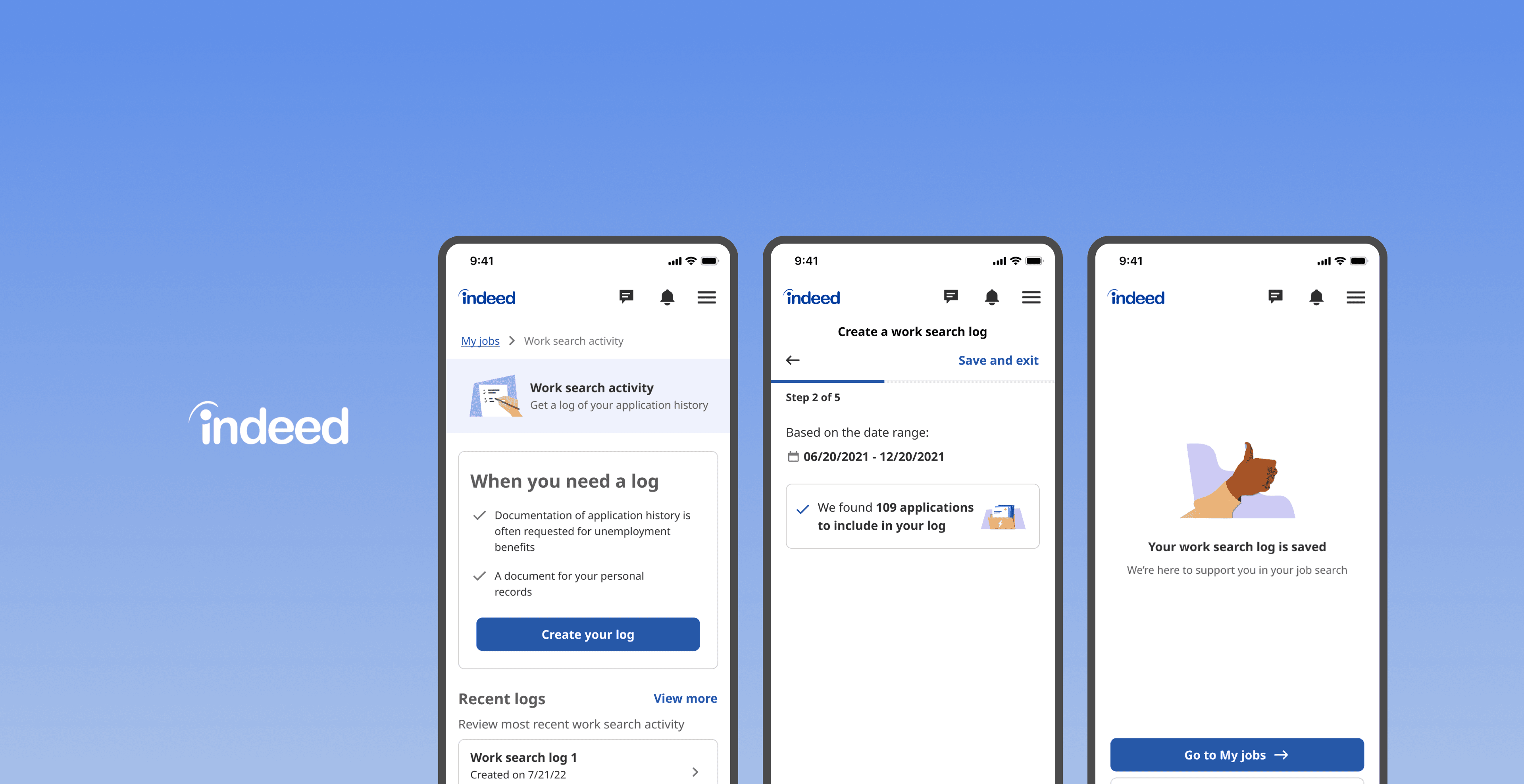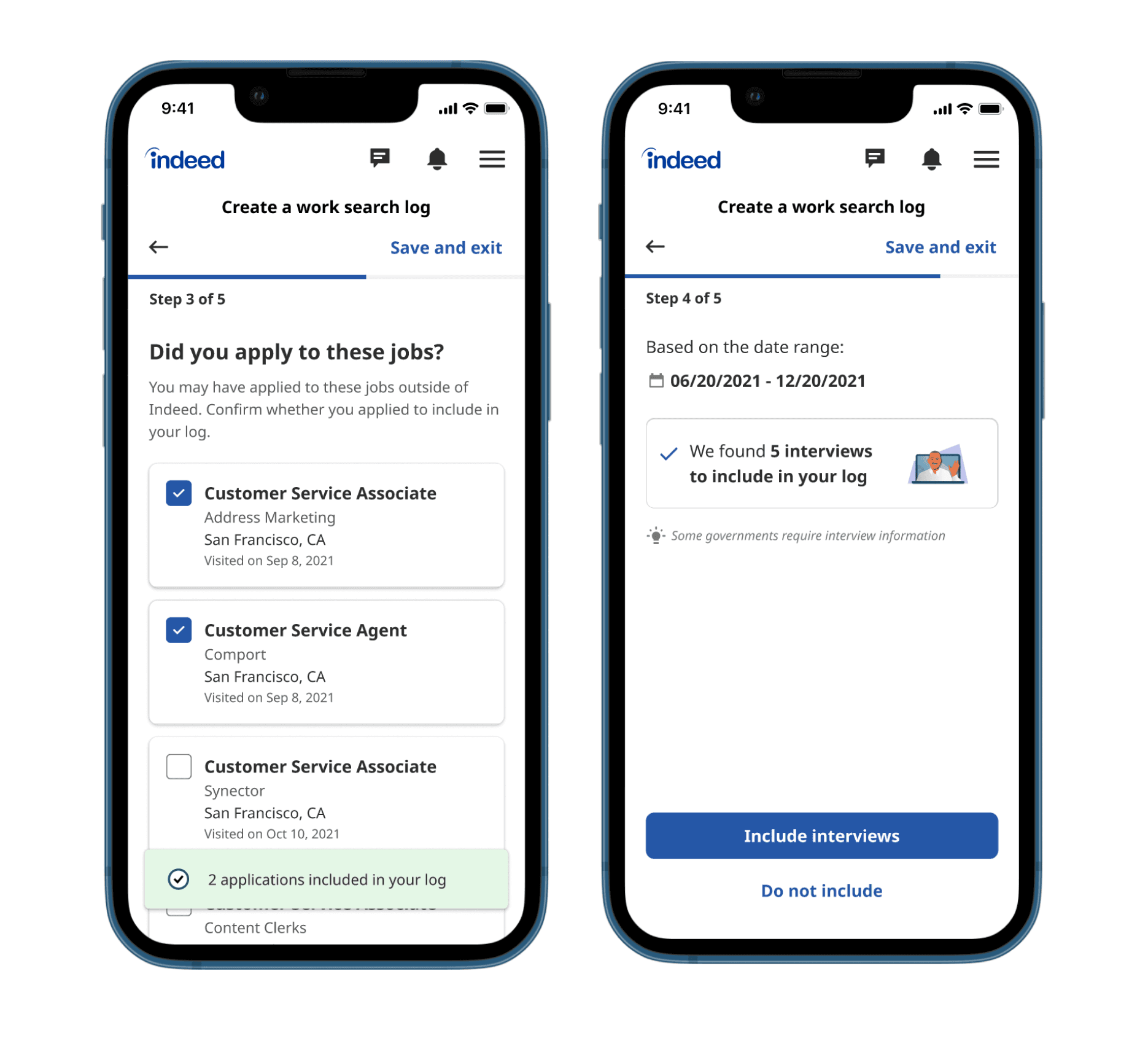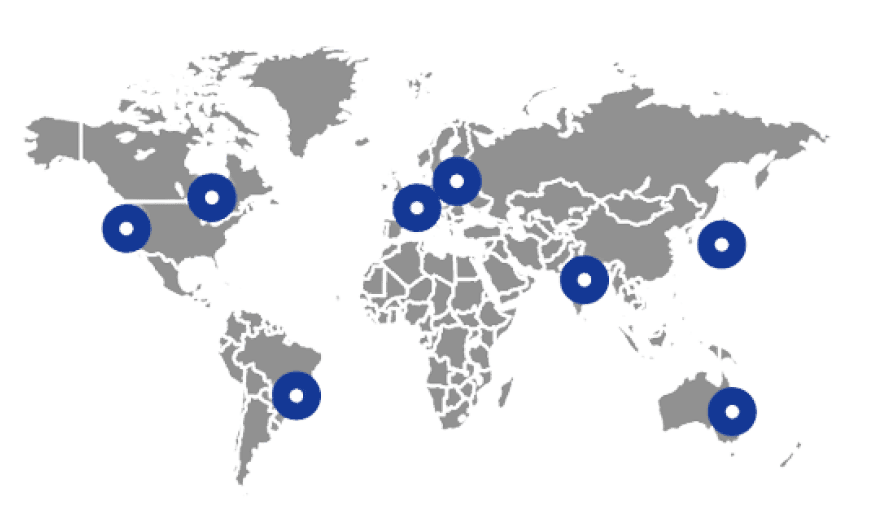Centralized place for entire application history
Designed a place where 250 million+ job seekers to access their application history
My Role & Team
UX Designer (Me)
/ Application Journey (My Jobs)
+5 cross functional teams
Timeline
June - August 2022 (6 weeks)
Project Status
UX Design Internship Project
PROJECT CONTEXT
Recurring requests for application history on Indeed
During the second half of the internship, I was given a capstone project: application history document has been a recurring request from job seekers.
PROBLEM
Job seekers find it difficult providing job search activity to file for unemployment benefits
According to research, government agencies often require job seekers to provide proof of their job search activities to receive unemployment benefits. Unemployed individuals across the country are struggling to file for these benefits due to difficulties in providing information about their job search activities, such as job applications and interviews.

SOLUTION
Help job seekers to easily file for unemployment benefits
Simple 5 Steps
Breakdown into 5 manageable steps to get all the necessary information:
- Log information
- Job seeker information
- Application history
Include 3rd pary apply & interview information
Provide flexibility to help job seekers have a complete work search activity log
Easy to document
Support various file formats, making it easy to edit and print for submission
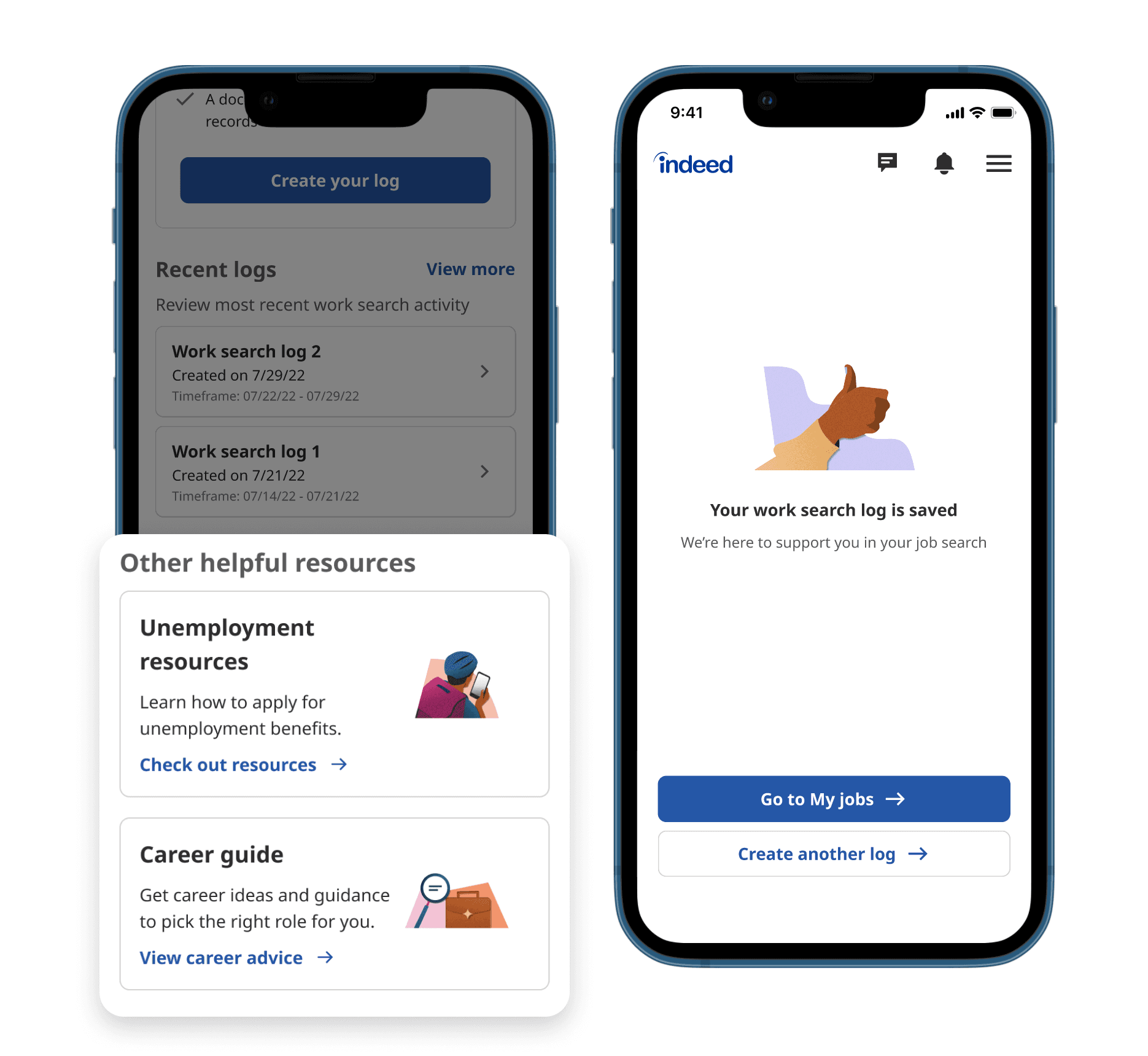
- Unemployment resources
- Career guidance
- Supportive UX Content
DESIGN PROCESS
I led the entire design process for this project, working closely with two senior UX designers and a content designer.

EXPLORATORY RESEARCH
79% of those requesting application history are seeking unemployment benefits.
In order to design solutions that encompass all use cases that job seekers need application history, I began by conducting exploratory research, which included talking to internal stakeholders such as the international product lead, international product analyst (IPA), and product director. I also conducted desk research to gain further insights. According to research, it was discovered that 79% of those requesting application history do so in order to submit for unemployment benefits.
Research questions that guided me through the exploratory research.
01.
What are the different instances that job seekers would need their application history?
02.
Understanding current user behaviors: How do job seekers currently file for unemployment benefit?
03.
What are the different requirements for international and US markets?
Is there a certain time frame that job seekers is looking for?
What information is important on the application history?
What are deal breakers requirements?
KEY FINDINGS
Job seekers all over the world need help filing for unemployment benefits, not only the US.
Australia
Belgium
Canada
Switzerland
Germany
Denmark
Spain
Japan
Netherlands
Norway
New Zealand
Sweden
France
United Kingdom
United States
Hong Kong
Ireland
Italy
Each government and state has different requirements for work search activity logs.
Minimum number of job search activity (applications, interviews & hiring events and more)
Time frame of the report
Required information
Delivery Method of document
Currently, My jobs on Indeed...
Applications that are older than 6 months are not visible to job seekers.
Not having sufficient information to complete work search log (e.g., detailed employer and job seekers information)
HOW MIGHT WE
Help job seekers easily retrieve all required work search information to file for unemployment benefits?
DESIGN SPACE EXPLORATION
Where and how should this new feature be delivered on the current Indeed platform?
I started ideating and gathering feedback on the concept of implementing this new feature. I began considering where to surface this new feature on Indeed and debated whether to design for desktop or mobile first, taking the time frame into account. After communicating with stakeholders, I figured out that 'My Jobs' page would be the best place to introduce this feature. 'My Jobs' is currently where people can view their application status. Following that, I decided to proceed with mobile design first, as mobile platforms have wider accessibility across various socioeconomic backgrounds and regions, since not everyone has access to a desktop computer.

DESIGN PRINCIPLES
Based on the problem space discovered, I've also set design principles to move forward with the project.
01.
Create an efficient and streamlined process
02.
Provide flexibility to help job seekers complete their work search log
03.
Convey guidance on their process for unemployment benefits
3 MAJOR DESIGN ITERATIONS
Throughout several design critique sessions with senior UX and content designers, as well as the UX director, I continuously iterated on my design over a span of two weeks, implementing 3 major improvements.
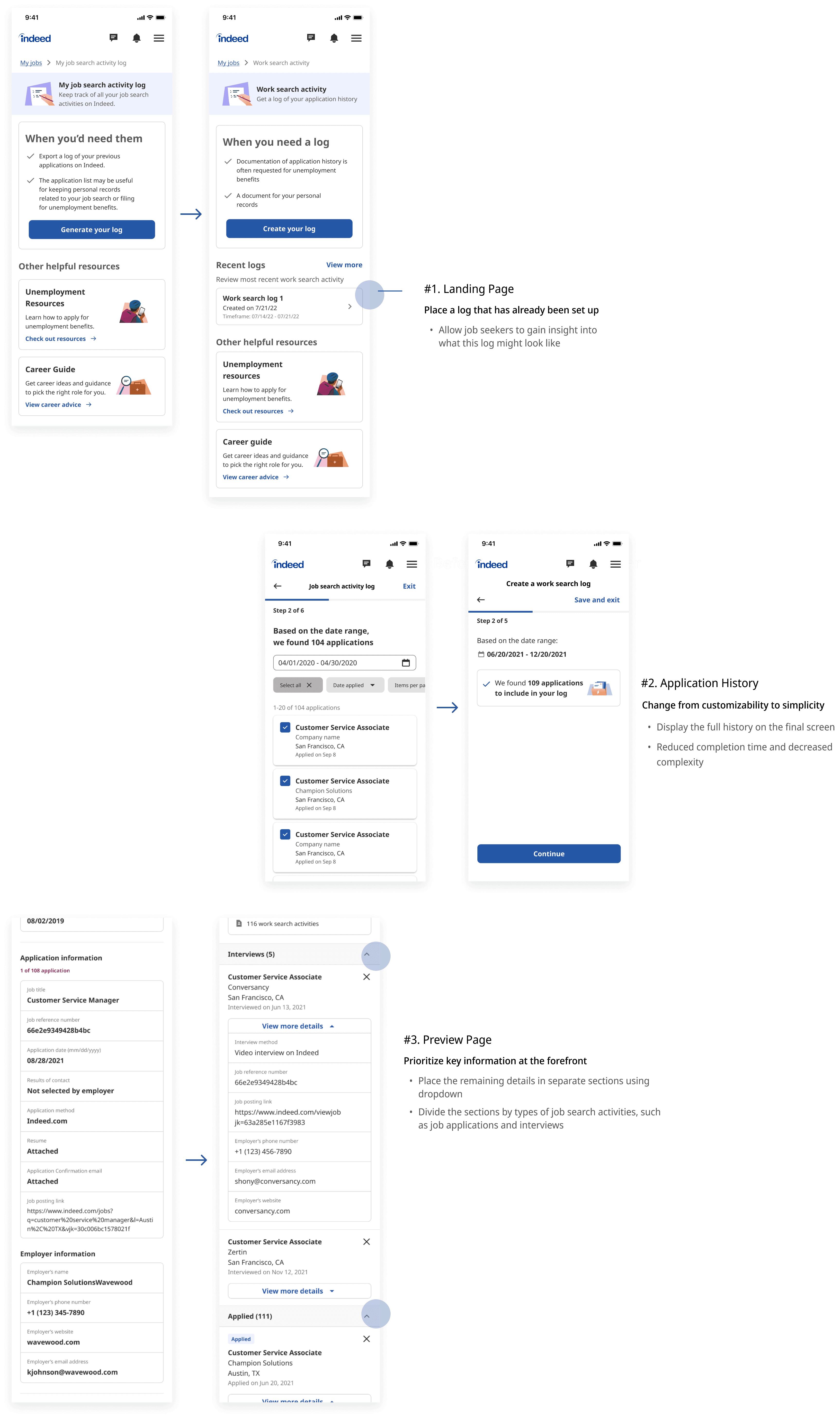
FINAL DESIGN
I created a new feature that allows job seekers to obtain all the necessary information filing unemployment benefits in just 5 simple steps.

REFLECTION + WHAT I LEARNED
Designing for millions of users means removing inherent biases and using data to make informed decisions.
I utilized internal Indeed IQL (similar to SQL) to extract user data, including demographics and project-related verbatims. This helped me incorporate user data into my design process for future guidance.
Design can never be an isolated process.
By actively collaborating and communicating with product and business teams, I learned that they can provide valuable insights into the features I'm designing. I learned the importance of involving them in my design process to incorporate their perspectives.
Next Steps
If I were given more time, I would have loved to conduct usability studies with job seekers, testing the prototype in real-world scenarios. This would have helped me identify the interface's usability regarding accessibility and assess the impact of the solutions on helping them filing for unemployment benefits.
TESTIMONIALS
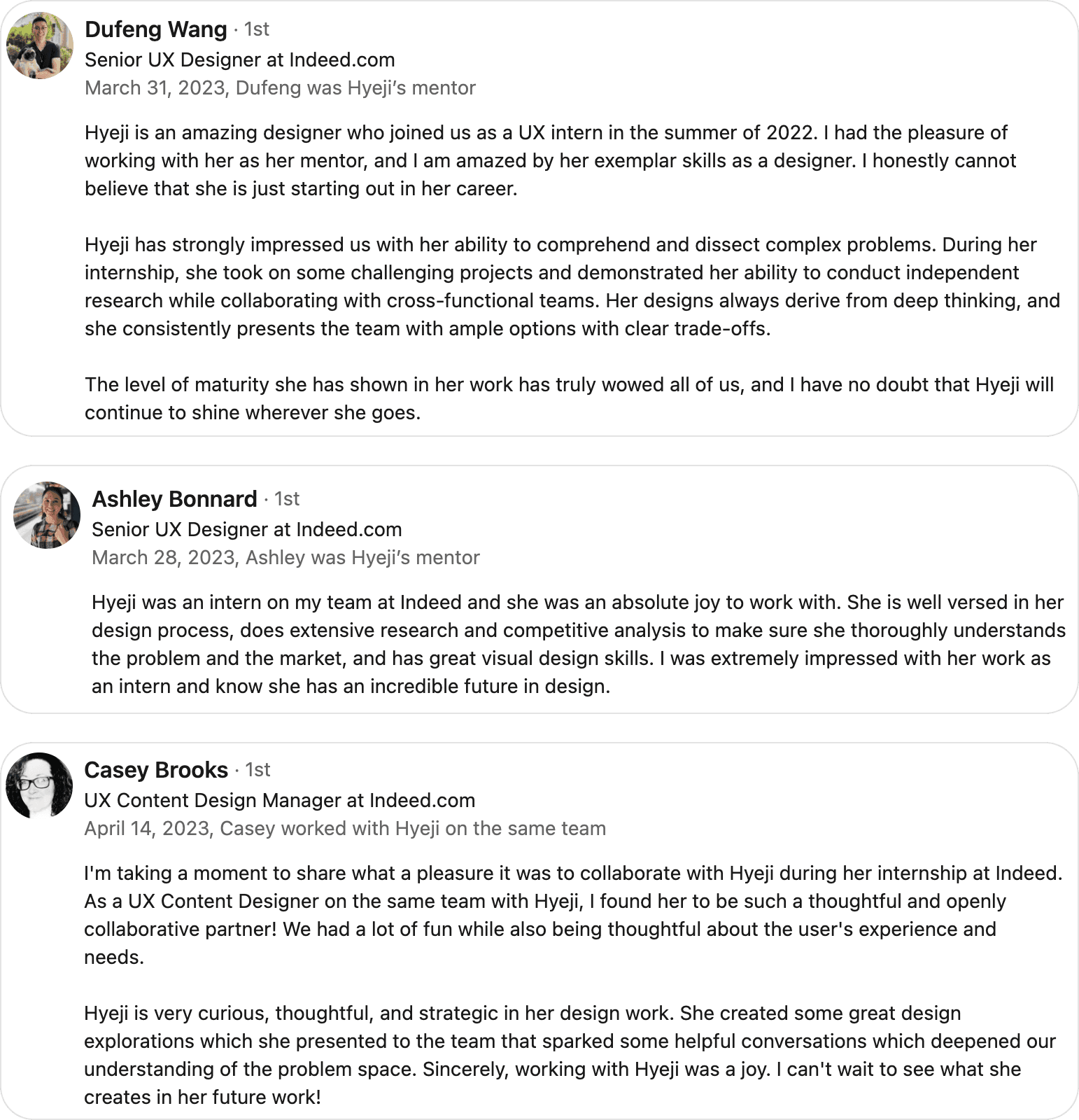
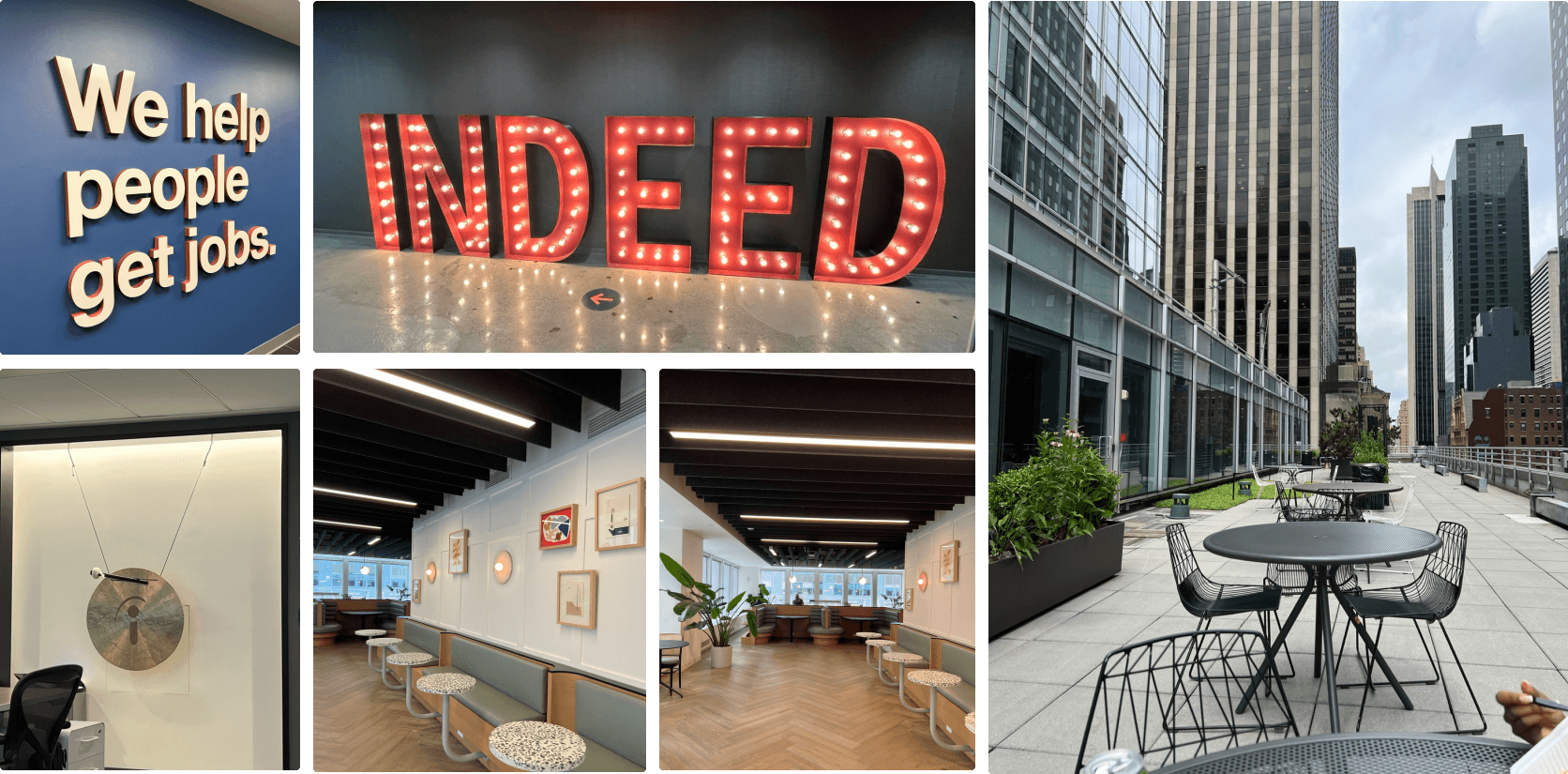
📸 Indeed NYC Office
